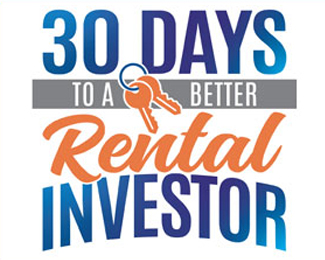

The 5 Most Common Mistakes New Real Estate Investors Make (and How to Avoid Them)
Real estate is one of the most powerful wealth-building tools available today—but that doesn’t mean it’s without risks, especially for those just starting out. Many new investors jump in full of excitement, only to stumble into the same avoidable traps. If you’re thinking about investing in your first property, knowing what not to do can be just as important as knowing what to do.
Here are five of the most common mistakes new real estate investors make—and how to sidestep them.
1. Not Running the Numbers (or Running Them Wrong)
The Mistake: Falling in love with a property and buying on emotion, not logic.
Why It’s Costly: If you don’t calculate cash flow, expenses, and ROI properly, you could end up losing money every month instead of making it.
How to Avoid It:
- Learn basic real estate math: cash-on-cash return, cap rate, and net operating income (NOI).
- Use free online calculators or spreadsheets to analyze every deal.
- Don’t rely on appreciation alone—buy for positive cash flow.
2. Skipping the Inspection or Underestimating Repairs
The Mistake: Trusting appearances and thinking, “It looks fine.”
Why It’s Costly: Hidden issues like bad plumbing, roof damage, or foundation problems can destroy your profit margin.
How to Avoid It:
- Always pay for a professional inspection.
- Get multiple repair quotes.
- Build a repair cushion into your budget—things always cost more than expected.
Tools That Help You Invest Smarter, Not Harder
3. Overleveraging (Borrowing Too Much)
The Mistake: Taking on more debt than you can comfortably manage because you’re eager to scale fast.
Why It’s Costly: One vacancy or emergency repair can sink you if your margins are razor-thin.
How to Avoid It:
- Leave room for unexpected costs in your budget.
- Avoid adjustable-rate or interest-only loans unless you’re experienced.
- Keep a reserve fund of at least 3–6 months of expenses.
4. Not Understanding the Local Market
The Mistake: Buying in a “hot” market without knowing the neighborhood or rental demand.
Why It’s Costly: You might struggle to find tenants, charge profitable rent, or deal with regulations you didn’t expect.
How to Avoid It:
- Research rental comps, crime rates, school districts, and job growth.
- Talk to local property managers and investors.
- Invest where you understand the dynamics, not just where prices are rising.
5. Trying to Do Everything Alone
The Mistake: Thinking you can (or should) be the agent, inspector, contractor, and landlord all at once.
Why It’s Costly: Burnout, mistakes, and missed opportunities.
How to Avoid It:
- Build a reliable team: agent, lender, inspector, contractor, property manager.
- Join local investor meetups or online forums to learn and network.
- Ask questions — seasoned investors are often happy to help.

💡 Final Thought: Start Small, Stay Smart
Your first investment doesn’t need to be flashy—it just needs to be a solid learning experience. Avoiding these beginner pitfalls can save you thousands of dollars, hours of frustration, and even your credit. Do your homework, stay disciplined, and remember: real estate success is a marathon, not a sprint.
Ready to level up your rental property game in just one month?
Join Coach Carson’s 30 Days to a Better Rental Investor course and get practical, step-by-step training to invest smarter and grow your real estate income — even if you’re just getting started.






